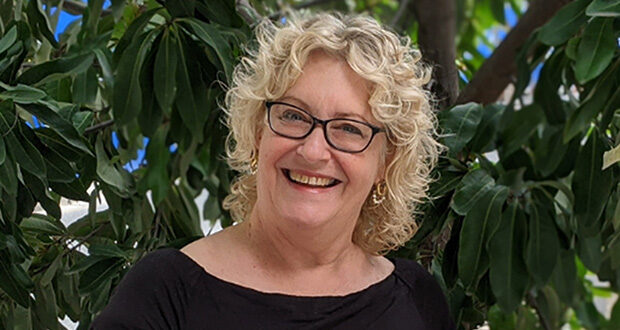Jeanette Tibbs, a community nurse working for Hepatitis Queensland in Coorparoo, has been named a finalist for HESTA's 2023 Nurse of the Year awards.
Ms Tibbs was nominated for he most recent work which saw her screen over 600 marginalised and vulnerable Queenslanders for liver disease.
"It was lovely to be nominated by the team," Ms Tibbs told Nursing Review.
"I'm committed to doing what I can, and I really like working with everyone involved."
Ms Tibbs joined the community-based non-government organisation Hepatitis Queensland in 2019 and regularly attends GP surgeries to assess people's livers.
Hepatitis C, the world's leading cause of liver disease, affects an estimated 58 million people worldwide.
In Australia, over 115,000 people are expected to live with the disease, of which one in five have not been diagnosed and are unaware of their infection.
Eight out of ten new infections in Australia are due to using contaminated needles.
In response, Ms Tibbs established the Be Liver Smart Initiative to increase the uptake of hepatitis C treatment within GP Surgeries.
Jeanette is also pivotal in the Community Corrections Project which tests and treats people who have been recently released from prison - a group highly vulnerable to hepatitis C.
"They come in, have a test done, or a moment of liver health with them, and we find the ones that are positive for hepatitis C and treat them," Ms Tibbs said.
"If they want to get better from it, eliminate it from their system, we give them the tablets."
The team ensures that the clients receive scripts at pharmacies and have a treatment fund to help pay for them.
They also encourage them to keep going by keeping in regular contact over the phone.
"Some appreciate it, while others prefer to be left alone," Ms Tibbs said.
She said, overall, a high percentage of people complete the medication and get better.
Direct-acting antiviral (DAA) tablets, such as Epclusa and Maviret, are a simple and effective treatment for hepatitis C with a 95% cure rate.
DAA tablet therapy generally lasts eight to 12 weeks before clearing the virus.
Despite the high success rate of people completing their treatment, Ms Tibbs said they 'still lose some people' due to reincarceration or other barriers.
"The challenge is to ensure they're okay, they get their tablets and complete their treatment," she said.
"They have many challenges to deal with and carry on after incarceration.
"We're just there to offer any help and get them through treatment if needed."
Ms Tibbs said that sometimes, just having a conversation about their wellbeing is enough to encourage them to get treated.
She recalled one man who recently reunited with his father but then shortly after passed away.
"I was just there, on the phone, to talk it through with him," she said.
"We look past everything and help them without judgement.
"We try to give them ideas about lifestyle changes, but you know you can't always do everything."
Ms Tibbs always knew she wanted to become a nurse and follow in the footsteps of her mother and aunt.
She grew up in Gunnedah along the Namoi River in North Western NSW.
"I still go back home for visits. My family is still there."
She attended school work experience at Gunnedah Public Hospital in the aged care ward.
In 1979, she commenced her nursing education at a small hospital in Sydney.
When Ms Tibbs moved to Queensland with her family, she took a job in the GP surgery sector, where she was a practice nurse for quite a few years.
As they moved down the coast, starting from Atherton in far north Queensland, she worked in surgeries along the way.
But working for Hepatitis Queensland is one of her most exciting roles that continues to challenge her and learn more about nursing.
"It's a wonderful place to work," Ms Tibbs said.
"Nursing is a great profession, and it has served me well.
"Keeping up with education and learning new things is always good."
Working 3 days a week, Jeanette attends hepatitis C clinics at Community Corrections and Be Liver Smart at GP Surgeries, scanning patient’s livers and educating them about fatty liver disease.
One in three Australians are estimated to live with a fatty liver.
The disease is most often caused by excessive consumption of [unhealthy] food and alcohol, leading to the build-up of fats damaging the organ.
The most effective way to treat a fatty liver is by pursuing healthy lifestyle changes and weight.
Ms Tibbs said it was essential to educate the public about liver diseases and be made aware they could be tested and treated.
"The more people are aware, the less there's stigma and discrimination," she said.
"In the end, any test that will help improve someone's health is essential."
Do you have an idea for a story?Email [email protected]
 Nursing Review The latest in heathcare news for nurses
Nursing Review The latest in heathcare news for nurses

